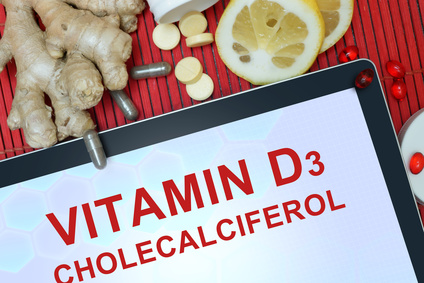Vitamin D3 - mode of action and intake
Lack of drive, increased tiredness or a high susceptibility to infections often occur in connection with a lack of vitamin D3. The human organism needs vitamin D3 in sufficient quantities, although it is sometimes difficult to meet this requirement without additional intake through dietary supplements. Vitamin D3 is actually not a vitamin in the usual sense. It is a hormone that needs exposure to the sun in order to be able to form in the body itself.
Vitamin D3 and UVB rays
Various studies have shown that Germans in particular suffer more from a vitamin D3 deficiency. This is not only due to the fact that the food supply in our part of the world is often insufficient. Sunlight also plays a key role. Vitamin D3 can be produced independently in human skin, but it requires sufficient UVB rays for this. And there lies the problem. If you don't spend enough time outdoors, you have to expect an undersupply of vitamin D3 in the long run.
The following reasons can favor a vitamin D3 deficiency:
-
little sun in the winter months
-
increased stay in closed rooms
-
Sunscreen (UVB filter)
-
a person's age
Which foods contain vitamin D3?
Very few people manage to ensure the recommended amount of the vitamin daily through their diet. Vitamin D3 is found in rather small proportions in most foods. Exceptions to this are herring and eels, which are more commonly consumed in the Nordic countries. In the 1960s, it was the order of the day to support weak-looking children by giving them cod liver oil. This can be attributed to the high proportion of vitamin D3. Even today, it can still make sense to provide the body with vitamin D3 as a dietary supplement.
Vitamin D3 is present in small proportions in the following foods, among others:
-
milk
-
Calf liver
-
Butter
-
No
-
Mushrooms
-
cod
-
salmon
-
Mackerel
-
Chanterelles
However, in order to be able to supply the human organism with sufficient vitamin D3, much too large amounts would have to be consumed here. This fact alone explains how important the supply of vitamin D3 is through supplements.
That is what vitamin D3 can do
Vitamin D3 is involved in numerous processes in the human metabolism. Above all, mobility benefits from an adequate supply of vitamin D3. It is by far not only older people who use vitamin D3 for reasons of mobility. The growth of the bones, but also their development, is generally positively influenced by this. The bone loss, which occurs more frequently in advanced age, can be stopped. With regard to the clinical pictures osteoporosis and rickets, vitamin D3 has made a good name for itself for a long time.
When does it make sense to take vitamin D3?
Depending on whether there is a detectable vitamin D3 deficiency, it is advisable to take different amounts. For adults, but also adolescents and children, the vitamin D3 supply makes sense when it comes to people who are rarely outdoors. It is important to note that sunlight has to act directly on the skin in order to be able to form vitamin D3. Full clothing or a sunscreen with a high sun protection factor are a hindrance here.
Older people often spend less time outdoors than younger people due to their lack of mobility. Because of this fact alone, an additional dose of vitamin D3 is particularly useful in these cases. In addition, within this group of people, the synthesis capacity of vitamin D3 is no longer available to the necessary extent, as it decreases with age.
Various factors influence the formation of vitamin D3 in the human body. First of all, it is the weather that plays a not insignificant role. The season and time of day must also be taken into account when it comes to spending time outdoors and thus vitamin D3 synthesis. The skin must be uncovered so that vitamin D3 can be formed. Here it is usually sufficient that
-
face
-
Hands and
-
Upper arms
are free and exposed to the sun for about fifteen minutes a day.
Vitamin D3 is also of particular importance with regard to the prevention of various chronic diseases. Various research results also confirm that older people in particular can achieve a better quality of life by taking vitamin D3. The aim is to reduce the risk of broken bones due to falls and imbalance and to have a positive effect on strength. Vitamin D3 can therefore be described as an all-rounder that optimally supports the human body in numerous functions.

